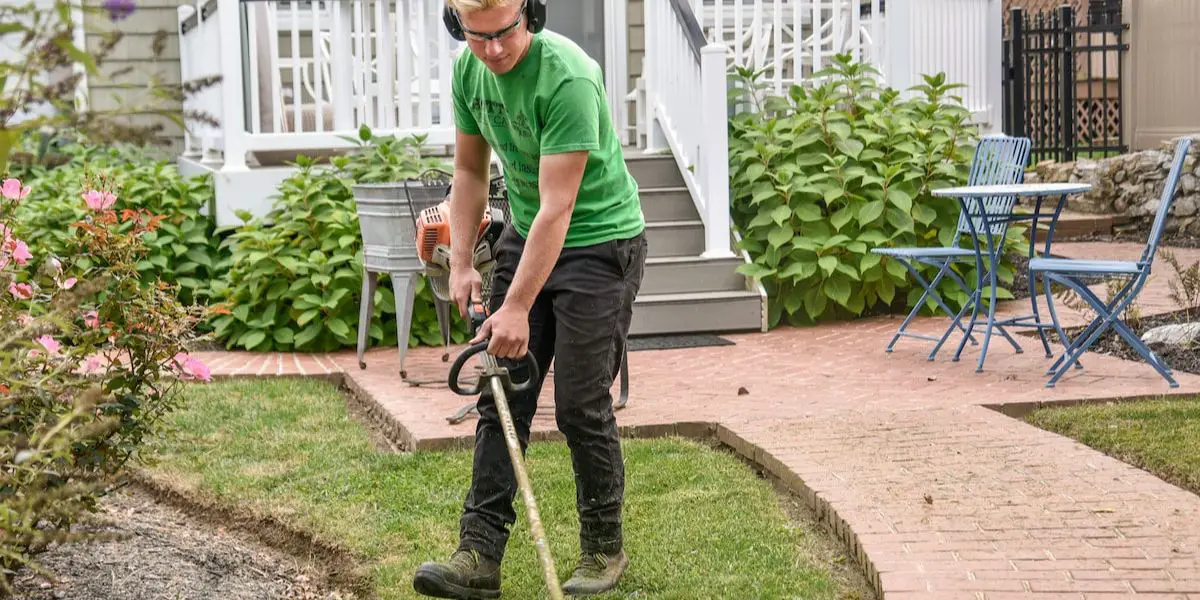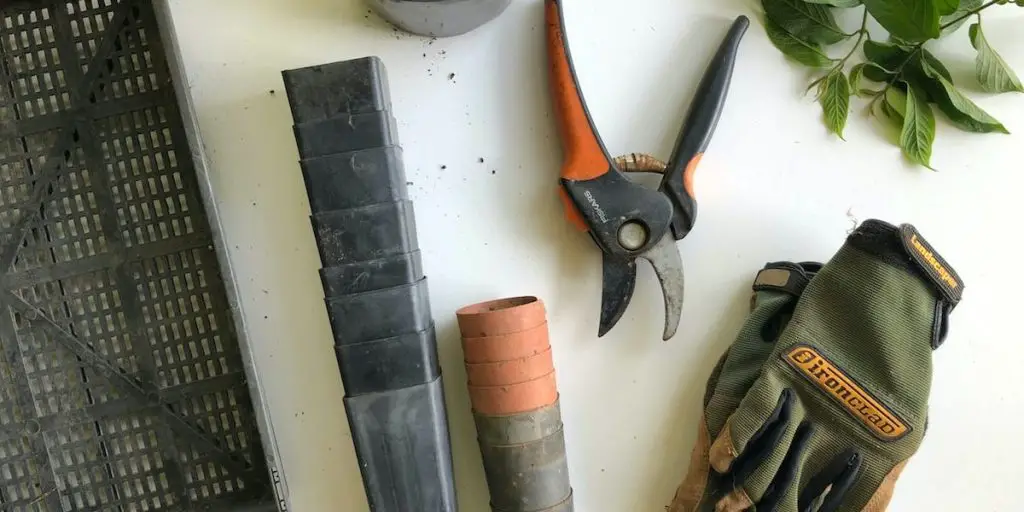When it comes to renting out a property, there are a lot of questions that need answers. Who is responsible for the garden? Is it the tenant or the landlord? This can be an incredibly confusing question to answer, as both parties may have differing opinions on the matter. Fortunately, we’ve got you covered.
In most cases, the landlord is responsible for the maintenance of anything outside the actual living space of a rented property—this includes the garden. The tenant is typically responsible for keeping it neat and tidy—cutting back any trees or shrubs, maintaining the lawn to a certain length, and generally keeping it tidy and weed-free. Ultimately, this is something that should be clearly outlined in your rental agreement/contract so everyone understands who’s liable for what.
In this article, we’ll cover who is responsible for maintaining a garden in a rented property and how to handle any disputes that may arise. We’ll help you understand what your rights are as either a tenant or landlord so you can make sure your rental agreement is fair and clear for everyone involved. So, whether you’re looking to rent out your home or find one to live in, read on and get all the information you need!
Landlord Vs Tenant Obligations
Is it true that the landlord is always responsible for the upkeep of a rental property? That is a common assumption, but it doesn’t always hold true. Generally speaking, the obligations of landlords and tenants are split when it comes to maintaining a rental property. Ultimately it will be up to the landlord and tenant to agree upon the division of responsibilities in their rental agreement.
When it comes to gardens at a rented property, responsibility-sharing between the tenant and landlord largely depends on the terms set out in their lease. In most cases, the tenant is expected to maintain lawns and gardens during their tenancy.
In any case, when deciding who is responsible for garden maintenance at a rented property, both parties should be aware of their legal rights. This will help ensure that all duties are properly allocated according to law and that any disputes over garden upkeep can be resolved quickly and fairly.

What is a Property Lease Agreement?
A property lease agreement is a contract between a landlord and tenant that outlines the rights, responsibilities, and obligations of both parties. It helps to clarify who is responsible for what when it comes to a rental property. The landlord will typically be responsible for maintaining all exterior areas, including gardens.
It’s always wise for tenants and landlords to review their property lease agreement carefully before signing anything. This document should clearly outline each party’s responsibilities so there’s no confusion about who is responsible for what when it comes to maintaining the garden in a rented property.
Reading through this document thoroughly before signing ensures that tenants have an accurate understanding of their rights while also protecting the interests of landlords as well. Moving forward with a clear understanding of one’s rights and responsibilities is key when it comes to navigating property lease agreements successfully.
When entering into a property lease agreement, it’s important to clearly outline who is responsible for taking care of the garden:
- Who has access to the garden?
- Who is expected to maintain or improve the garden?
- What type of maintenance or improvement is required?
- How often should maintenance or improvement be done?
- What happens if there are disputes about responsibility for maintenance or improvements?
Both the landlord and tenant should keep records of any inspections that take place during the lease period. This can help ensure that both parties are fulfilling their obligations as outlined in the lease agreement and that any disputes over responsibility for gardening can be resolved quickly and fairly.
Now that we have established who is responsible for garden duties under a rental property lease agreement, let’s move on to discussing how those duties should be maintained.
Maintenance Of Exterior Areas
When renting a property, it is important to understand who is responsible for the upkeep of exterior areas. This includes yard maintenance, garden maintenance, and outdoor lighting. For tenants, there are specific duties that must be carried out in order to keep the area in good condition.
| Yard Maintenance | Garden Maintenance |
| Mowing lawns | Planting flowers & shrubs |
| Trimming hedges & trees | Pruning trees & shrubs |
| Weeding flower beds | Replacing dead plants |
| Raking leaves & debris | Watering plants & lawns regularly |
It is always best to ensure that any agreement between landlord and tenant outlines specifically what is expected of each party when it comes to exterior maintenance. It should also be stated who will be responsible for any repairs or replacements should they become necessary. Outdoor lighting may also need to be addressed if it’s not included in the contract. Tenants should ensure they understand their responsibilities before agreeing to rent a property.
The upkeep of lawns and gardens can be very time consuming, so both landlords and tenants should agree on who will handle these tasks before entering into a rental agreement. Knowing what is expected by both parties can help prevent misunderstandings, as well as ensuring that the exterior of the property remains in good condition throughout the tenancy period.

Upkeep Of Lawns And Gardens
Maintaining a garden is like a work of art. It requires careful attention to detail, from the tending of delicate flowers to the pruning of robust shrubs and trees. In a rented property, who is responsible for keeping up with the lawn and garden upkeep?
When it comes to landscaping upkeep, it depends on the landlord or rental agency’s agreement with the tenant. Generally speaking, if the renter is responsible for maintaining the exterior areas of their rental home, then they’ll be expected to take care of any lawn and garden care tasks. This could include things such as mowing and watering the lawn, trimming hedges and trees, weeding flower beds, fertilising plants and flowers, etc. The landlord might also provide some materials such as hoses or rakes to help with these tasks.
In some cases, however, landlords may provide gardening services at an additional cost. This could be beneficial for renters who don’t have time or aren’t familiar enough with gardening techniques to maintain their garden properly. Ultimately it’s important that both parties understand their responsibilities when it comes to lawn upkeep and garden care before entering into any contractual agreements.
With proper maintenance, renters can enjoy a beautiful garden full of colourful blooms in their backyard – something that will both add value for them and increase curb appeal for potential buyers if they decide to move out at some point in time. Taking care of trees, shrubs and hedges is essential for keeping rental properties looking neat and attractive from all angles – inside and out!
Care Of Trees, Shrubs And Hedges
The responsibility for maintaining trees, shrubs and hedges in a rented property usually falls to the tenant. Tree-pruning and shrub-pruning can help enhance the appearance of the property while also promoting healthy growth. If a tree is dead or decaying, it should be removed as soon as possible to prevent potential damage to people or property. Hedge-trimming is also important for keeping outdoor spaces neat and tidy.
It’s essential to use the appropriate tools when caring for trees, shrubs and hedges; using the wrong equipment can cause unnecessary damage or injury. In addition, it’s important to ensure that any tree trimming or pruning is done in accordance with local regulations. Finally, proper care of trees, shrubs and hedges will help keep a rented property attractive and safe for its tenants. With this in mind, it’s important to consider the use of pesticides and herbicides in order to maintain healthy growth.
Use Of Pesticides And Herbicides
When it comes to managing pests in a garden, it is important to consider the use of pesticides and herbicides. These chemical agents can be effective at controlling bugs and weeds. However, care should be taken when using them as they can be toxic if not applied correctly. Here are some tips for safely using these products:
- Always read and follow all instructions on the label before applying any pesticide or herbicide.
- Do not apply more product than recommended – this can lead to property damage or harm wildlife.
- Wear protective clothing when applying these chemicals, such as gloves and long sleeves.
- Do not apply near water sources, such as streams or ponds, as it may contaminate the water supply.
- Check with local authorities for any restrictions on their usage in your area.
By following these guidelines, you can ensure that your garden is properly maintained without causing harm to your environment or other people. If you are considering using pesticides or herbicides but are unsure how to do so safely, contact a professional landscaping service who will be able to advise you on the best course of action for your particular situation.

Landscaping Services
When renting a property, the landlord and tenant must agree on who is responsible for garden maintenance. Generally, it’s the tenant’s responsibility to keep the outdoor areas in good condition. This includes all landscaping and hardscaping services like mowing the lawn, weeding, trimming hedges and trees, planting flowers or seasonal foliage, as well as any outdoor lighting requirements. To ensure that both parties are satisfied with the condition of the property, regular maintenance should be carried out throughout the tenancy period.
Tenants may consider hiring landscaping professionals to carry out these tasks as they have experience in garden care and can complete jobs quickly and efficiently. In addition to providing garden services, many companies also offer tips on how to maintain healthy plants and turf. By consulting a professional gardener for advice, tenants can be sure their rental property looks great year-round.
Whether you’re a landlord or a tenant, it’s important to determine who is responsible for landscaping services upfront before signing your lease agreement. This way both parties understand their commitments and there’s no dispute about who pays for what when it comes time for garden maintenance. With clear expectations set by both sides right from the start of the tenancy period, everyone involved can look forward to living in a beautiful homely environment.
Cost Sharing Between Parties
Who is responsible for the garden in a rented property? The question of cost-sharing between landlords and tenants can be complicated. Many rental agreements include clauses regarding exterior maintenance, such as gardening and lawn care. These clauses typically state that the tenant must maintain the landscaping on their own or with help from a professional landscaping service.
But what happens when pesticides or herbicides need to be applied? Who pays for the costs associated with these treatments? To answer this question, it’s important to review the terms of your property lease.
| Landlord Responsibility | Tenant Responsibility |
| Mowing | Pruning |
| Weeding | Fertilization |
| Watering | Pesticide/Herbicide |
In most cases, landlords are responsible for mowing, weeding, and watering while tenants are responsible for pruning, fertilizing, and applying pesticides or herbicides. If there is ambiguity in the lease agreement, it may be necessary to consult a solicitor. It’s also important to keep records of any costs associated with maintaining the garden during your tenancy – this will come in handy when calculating end-of-lease considerations.
End-Of-Lease Considerations
When a tenant moves out of a rented property, there are several considerations that must be taken into account. End-of-lease obligations must be met by both the tenant and the landlord. Security deposits typically need to be returned, and tenants will usually require a notice period before they move out.
Tenants have certain rights during the end-of-lease process, which may include a review of any damages to the property and their right to receive their security deposit back. Landlords also have rights, such as the right to inspect for damage in order to ensure that it is in compliance with state laws or leasing agreements.
In addition, responsibility for gardens on rented properties should be determined before signing any lease agreement. This includes who is responsible for regular maintenance, such as mowing and weeding, as well as who is liable for any damage caused by an overgrown garden. Clearly determining these issues prior to signing a lease can help avoid disputes at the end of the tenancy.
It’s important for both landlords and tenants to understand their respective rights and obligations when it comes to end-of-lease considerations. Doing so can help ensure that both parties’ interests are protected during this process.
Frequently Asked Questions
Who Is Responsible For Monitoring The Condition Of The Garden?
When it comes to monitoring the condition of the garden in a rented property, it is important to understand who is responsible for this task. While tenants may be able to keep up with some basic maintenance tasks, it is ultimately the responsibility of the landlord or property manager to ensure that they are monitoring the garden’s condition. This can involve anything from occasional inspections to regular check-ups, depending on the needs of both parties.
When discussing garden monitoring responsibilities, there are a few important items to consider:
- Regular inspections should be carried out by either party involved in order to identify any potential issues before they become significant problems
- The tenant should be informed of any changes that need to be made in order for the garden condition to remain optimal
- If necessary, pest control and gardening services should be brought in as soon as possible in order to maintain healthy vegetation
- Both parties should agree on a timeline for when these inspections and other services will take place.
As a property manager, it is essential that you are aware of all your tenants’ garden monitoring responsibilities and can advise them accordingly. Being proactive about educating tenants on their rights and duties regarding garden maintenance not only helps ensure that everyone involved understands their roles but also helps ensure that the garden remains in good condition throughout its occupancy.
Ultimately, understanding what is required by both parties will help make sure that everyone’s expectations are met and create an environment where everyone feels comfortable and confident about their rental experience.
Are There Limits To The Types Of Plants That Can Be Planted In The Garden?
When it comes to renting a property that has a garden, there are certain restrictions and limits that tenants should be aware of. It is important to know what types of plants or fertilizers are allowed in the garden, lest you face potential fines or other penalties. To help you out, we have gathered information on the limits of gardening restrictions when it comes to renting a property with a garden.
Gardening restrictions come down to the types of plants and fertilizers that can be used in a rented property’s garden. In many cases, landlords will specify which types of plants can be planted, as well as any fertilizer limits such as organic vs non-organic. This is usually outlined in the rental agreement before signing, so it’s important to read through this thoroughly prior to agreeing to the terms.
No matter what type of gardening project you plan on doing at your rented property’s garden, it is crucial to understand all the guidelines and regulations before getting started. Doing so will ensure that your gardening project goes smoothly without any unexpected surprises along the way.
Are There Any Restrictions On The Use Of Fertilisers Or Other Chemicals?
Are there any restrictions on the use of fertilisers or other chemicals in the garden? As a renter, it’s important to ask your landlord about any limitations they may have when it comes to using fertilisers and chemicals in the garden.
When renting a property, you should always check if there are any fertiliser restrictions or chemical restrictions imposed by the landlord. This is especially true if you plan on using specific types of garden fertilisers and chemicals. Depending on where you live, there may be certain regulations that require special licensing for certain types of products. It’s essential to understand these regulations and make sure you comply with them before using any gardening products.
The best way to know what type of use restrictions are in place for the garden is to ask your landlord directly. They will be able to provide further details about what type of fertilisers and chemicals are allowed on the property, as well as any other specific rules that must be followed.
Taking these steps will help ensure that your rental experience goes smoothly, so it pays to take some time up front to research these matters thoroughly.
How Often Should The Garden Be Watered And By Whom?
Watering a rented garden can be a tricky proposition, like playing hopscotch on a tightrope. It’s important to understand the frequency and responsibility of watering the garden so that it stays healthy and vibrant.
When it comes to watering frequency, most plants will benefit from being watered around once every week or two, depending on the weather. However, if there is an especially hot or dry spell, more frequent waterings may be necessary. Those responsible for the garden should always keep an eye on their plants and adjust the watering schedule accordingly.
The tenant of a rented property is usually responsible for maintaining their garden, including regular watering. The landlord may also specify in the rental agreement that certain chemicals such as fertilisers are prohibited from use in the garden. Therefore, tenants should be sure to check any contract they have with their landlord before using any kind of chemical treatment on their garden plants.
Garden upkeep requires careful consideration regarding watering frequency and responsibility as well as which chemicals are allowed in order to keep everyone happy – both tenants and landlords alike. Knowing this information can help ensure that any rented garden remains lush while still upholding all legal agreements.
Who Is Responsible For The Removal Of Weeds And Other Unwanted Vegetation?
When it comes to garden rental in a rented property, the removal of weeds and other unwanted vegetation is a key consideration. It’s important to know who is responsible for this task, so that the garden can be kept in pristine condition.
In general, the tenant will be responsible for removing weeds and other unwanted vegetation from their garden. The landlord may provide guidance on how often this should be done, but ultimately it’s down to the tenant to make sure it gets done. This could be weekly, fortnightly or monthly depending on the condition of the garden and its size.
There are a few ways for tenants to handle weed removal:
- Pull them out manually using a hand trowel or fork.
- Use an organic herbicide that doesn’t harm beneficial insects like bees and ladybugs.
- Plant ground covers, such as clover or creeping thyme which naturally suppress weeds from growing in between paving stones or along borders.
For renters looking after a garden in a rented property, being aware of who is responsible for weed removal and other unwanted vegetation is essential for maintaining an attractive outdoor space. Taking care of the garden regularly will help keep it looking great all year round.
Conclusion
It is important to understand the responsibility of maintaining a garden in rented property. In most cases, the tenant will be responsible for monitoring the condition of the garden and ensuring that it remains healthy and attractive. They may have limits on what kinds of plants they can put in, as well as restrictions on the use of fertilisers or other chemicals. Additionally, tenants should be aware that they need to water their garden regularly and take care of any weeds or other unwanted vegetation.
By understanding who is responsible for caring for a garden in rented property, tenants can ensure that their gardens remain beautiful and welcoming. Taking the initiative to maintain it will also help them keep their rental agreement in good standing with their landlord. It’s also a great way for tenants to show off their green fingers and create a cosy outdoor space for themselves and guests.
Ultimately, it’s important to remember that tenants are responsible for taking care of their garden while renting property. With proper research and knowledge about regulations, tenants can create a stunning oasis right outside their door!


